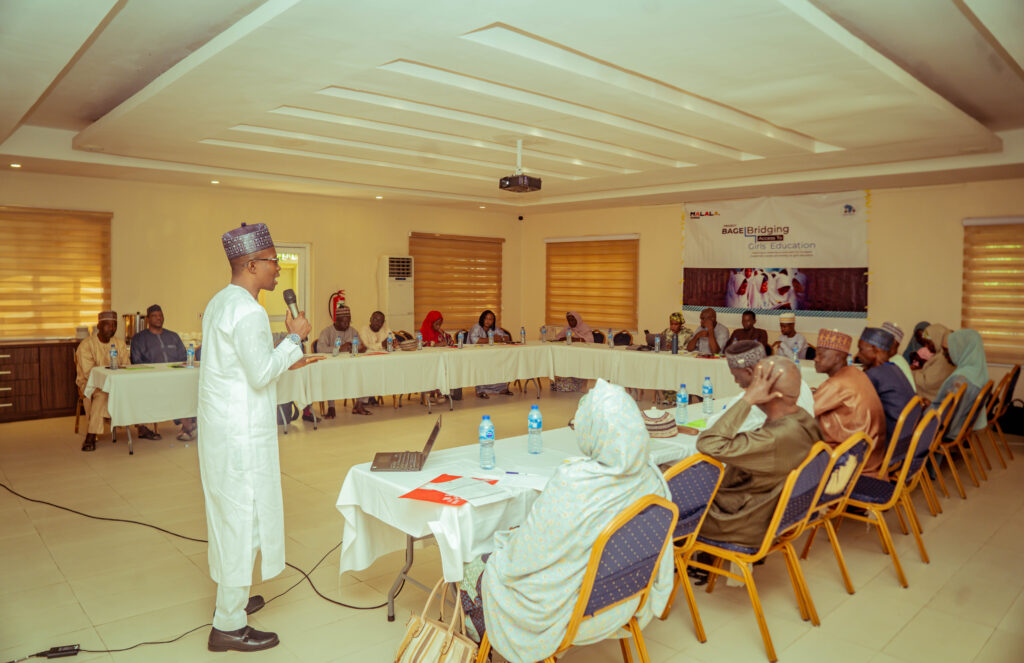Stakeholders in the education sector have raised the alarm over gender disparity in the sector, saying only one out of 34 technical colleges in Kano State is allocated for female students.
The narrative is similar at the Kano State Quranic and Islamiyya Management Board, where out of 13 Tsangaya schools in the state, only one is allotted for female students.
Amina Alqassim, Coordinator of Girls Education from the state Ministry of Education, disclosed this on Monday during the validation session for the Gender Responsive Education Budgeting (GREB) framework in Kano State.
The event organized by the Bridge Connect Africa Initiative was part of the line-up activities for its ongoing three-year project, Bridging Access to Girl Child Education, in Kano State, funded by the Malala Foundation.
Alqassim outlined some of the factors fueling the gender disparity in the sector to include social-cultural norms and value, infrastructures, as well as poor budget and resource allocation.
READ ALSO: Kano Govt Makes U-Turn, Downgrades Sa’adatu Rimi University To College of Education
She believes that with the ongoing concerted efforts and advocacy gearing towards the adoption of the GREB framework, the identified gaps would be bridged in no time.
“With this gender responsive education budgeting (GREB) framework, we are able to identify the gaps in education budgeting in order to ensure equity in the allocation of resources.
“For instance, during the validation meeting that we just concluded, some people raised concerns that only one out of about 34 technical colleges in Kano is allocated for female students.
“They also pointed out that only one out of 13 Tsangaya schools in the state is also allocated to girl children, so these are the kind of issues that GREB would address when it is adopted by God’s grace.” She said.
The coordinator, who doubles as the chairperson of the GREB committee, assured that after the final touch of the GREB framework, the document would be presented to the commissioner for education for adoption and onward presentation to the state governor.
READ ALSO: Kano Govt Declares State of Emergency On Education, Recruits 5,632 Teachers
“When it comes to girls’ education in Kano, I can vouch for the state government that it is ready to move the state forward and support any move in that regard, so we are hopeful that the framework would be adopted.” She said.
In his remarks, Mohammed Bello, the lead consultant of the Bridging Access to Girl Child Education Project, said if adopted, the framework would translate to more money for girl child education in the state.
Bello added that the document would also address the challenge of out-of-school children by encouraging more girls to transition from primary to junior secondary schools and from senior secondary school to tertiary institutions.
“This is the third session of the exercise, which aims at drafting GREB for the ministry of education and sub-sectors to be institutionalized into the system to enhance gender responsiveness so as to close those gender disparity gaps.
READ ALSO: Hidden Health, Education Crisis Caused by Unsafe Water in Kano Communities
“This is to achieve a situation where we begin to see more budget allocation for girl child education in addressing the issue of completion and transition rate that is dropping now to see improvement in that number for girls in order to maximize their opportunities as their fundamental human rights.
“We are looking at an increase in budget size of about nine to ten percent of the education budget being allocated for the girl child education initiative in the state.” He said.
On her part, Fatima Musa Aliyu, Chief Operating Officer (CEO), Bridge Connect Africa Initiative, said the validation meeting was part of the unrelenting efforts of the stakeholders to ensure girls have access to quality education in the state.
READ ALSO: EU, UNICEF, Engage Education Stakeholders To Accelerate Schools Enrollment In Jigawa
“From our findings, more than one million children are out of school in Kano, and most of them are girls, hence the need to work on this framework to enable the girls to reach their full potentials.
“The stakeholders want the girls’ access to quality education to go beyond girls’ enrollment in primary schools to transitioning to secondary and higher institutions.” Aliyu said.
